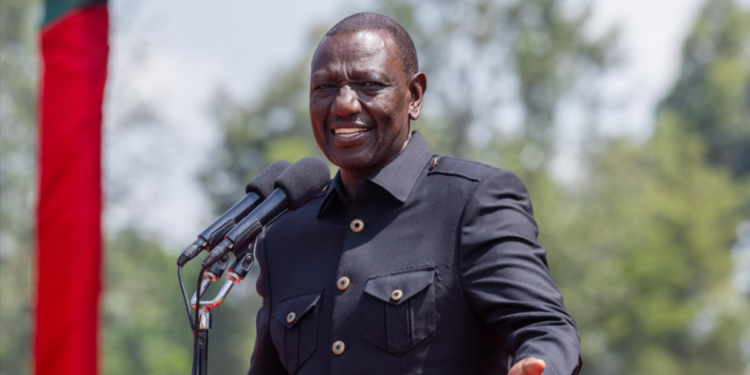President William Ruto has departed for the Republic of Korea to attend the Korea-Africa Summit, a high-level gathering that promises to catalyze deeper ties between the two regions.
The summit will serve as a platform for Africa and South Korea to explore areas of mutual interest, ranging from trade promotion and industrialization to infrastructure development and job creation.
According to a press release from State House Spokesperson Hussein Mohamed, the discussions will extend to crucial topics such as agricultural productivity, climate change response, and the transition towards carbon-free energy sources. These subjects align with President Ruto’s roles as the African Union Champion for Institutional Reform and the Chair of the Committee of African Heads of State and Government on Climate Change.
Bilateral talks between President Ruto and his South Korean counterpart, President Yoon Suk Yeol, are also on the agenda. The two leaders are expected to review the progress of the KES 132 billion Framework Arrangement partnership agreed upon during Ruto’s visit to Seoul in November 2022. This partnership focuses on key projects in water and irrigation, agriculture, infrastructure, and the burgeoning creative economy sector.
“Agreements worth KES 40 billion will be concluded to create opportunities in Kenya’s creative economy sector, and KES 25 billion for water and irrigation projects,” Mohamed stated, underscoring the significance of these deals.
Furthermore, several Memoranda of Understanding (MOUs) are slated to be signed, deepening partnerships and collaboration in areas such as health, agriculture, and information and communications technology (ICT). Kenya also plans to engage South Korea in exploring technology opportunities, including the development of its semiconductor industry.
Kenya is also set to join the International Vaccine Institute (IVI), a move that Mohamed emphasized aligns with the country’s goals in vaccine manufacturing ambitions.
Labor migration is another key topic on the agenda, as Kenya and South Korea are anticipated to finalize a Labor Migration Program. If successful, this could potentially make Kenya one of the few African countries approved for labor supply under the South Korea Employment Permit System (EPS) Program.
Cementing economic ties, the trip will also lay the groundwork for Kenya and South Korea to initiate negotiations for an Economic Partnership Agreement (EPA) between the two nations, a development that could unlock new trade and investment opportunities.

















